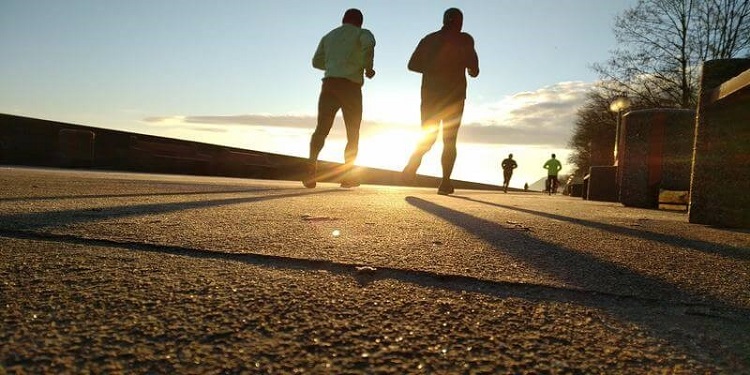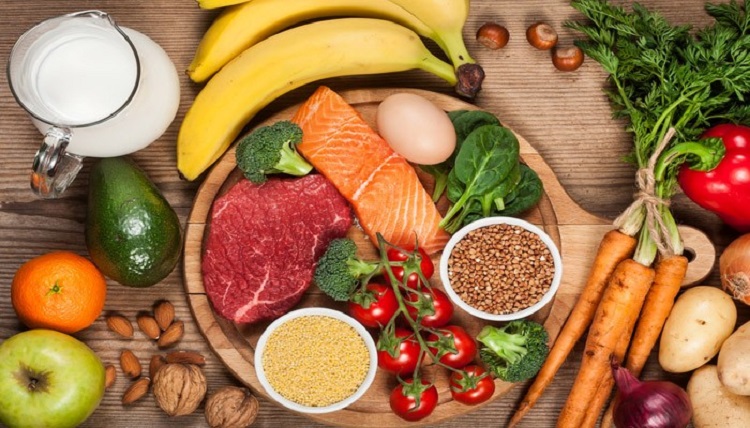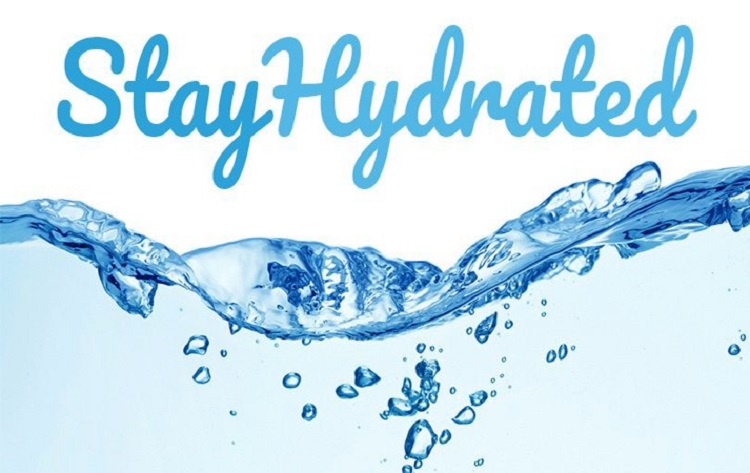Natural Ways To Boost Your Energy For New Year
After holidays and back to busy lives, many people regularly find themselves feeling tired and drained.
However, if the tiredness you’re experiencing is lifestyle-related, there are lots of things you can do to increase your energy levels.
This article suggests 5 ways you can apply to your lifestyle and boost your energy levels naturally.
Control Stress
Stress-induced emotions consume huge amounts of energy.
It’s not uncommon for people with busy lives to feel stressed, anxious or overwhelmed.
Feelings of stress can mean that you struggle to concentrate, experience racing thoughts and have difficulty switching off.
This can take a toll on your physical and mental health (1),(2)
It may not be possible to completely remove sources of stress from your life. However, if you minimize lifestyle related stress, it could increase your energy levels.
Strategies to improve your energy levels include taking some time for yourself to relax, reading or going for a walk (3). You could also try mindfulness or meditation techniques, which may reduce anxiety (4),(5).
However, it’s important to note that if you feel very stressed and your anxiety is severe, you may need to seek medical and psychological support (6).

Move more
Regular exercise is important for reducing your risk of developing chronic diseases like heart disease, diabetes and obesity. Even if you live a sedentary lifestyle, it could also boost your energy levels (7),(8).
This may seem counterintuitive, as when you’re feeling tired, getting up and moving your body can feel like the last thing you want to do. Luckily, you don’t need to take part in killer workouts to experience these benefits.
In fact, one study found that sedentary people with persistent, unexplained fatigue decreased their tiredness by around 65% just by regularly participating in low-intensity cycling (9). Other studies have suggested that going for a 10-minute walk when you feel tired is a superior “pick me up” compared to having a snack (10).
To incorporate exercise into your day, you could try getting away from your desk and going for a walk on your lunch break or walking to and from your place of work.

Eat a Nutritious Diet
If you’re always feeling tired, sluggish and low in energy, it might be worth taking a look at your eating habits. Good dietary habits decrease your risk of developing chronic diseases and can also affect your energy levels and how you feel from day to day (11),(12),(13).
Your body needs fuel to keep you going. Choosing whole, nutritious foods most of the time will provide your body with the nutrients it needs to function at its best (14). If you’re eating a lot of processed foods high in sugar and fat, you may find that they affect your energy levels as well as your health (15),(16).
Additionally, if you have an erratic meal pattern and regularly skip meals, you may miss out on necessary nutrients, making you feel tired (17). It’s also important that you eat enough food to fuel yourself during the day.
Extreme dietary restrictions can result in a lack of both calories and essential nutrients, such as iron, which can negatively affect your energy levels (18).
And when it comes to boosting energy and preventing fatigue, some specialized herbs can be helpful in the long-term like: Ginseng, Cordyceps, Maca, Ashwagandha, Sage,… (*) We will show you more detail in further article.

Stay Hydrated
Depending on age, your body is made of 55–75% water (19).
During the day, you lose water via urine and sweat. So in order to stay hydrated, you need to drink enough water to compensate for this loss.
Dehydration can affect your brain function, mood and energy levels (20).
To stay hydrated, make sure you drink when you’re thirsty. Also remember that if you sweat a lot due to hot weather or being very active, you may need a little more water. Additionally, keep in mind that older people may not always feel thirsty, even when they need to drink, and may need to make a conscious effort to drink more.
Overall, if you feel tired and don’t think you drink enough water, try drinking it regularly through the day to ensure you stay hydrated.

Social connections are incredibly important for maintaining good health.
In areas of the world with unusually low rates of disease and a high number of centenarians (people who live to be over 100 years old), one of the common factors is a strong social support network.
Social isolation can cause low mood and tiredness, especially as you get older (21). In fact, people with stronger social networks are thought to have better physical and mental health as they age (22).
If you feel tired and in low spirits, it can be helpful to get out socializing with friends, joining a social club or starting a new hobby that gets you out and about.

The Bottom Line
Many people feel tired and lack the energy to function at their best throughout the day.
However, drinking enough water, eating healthily, getting active and being sociable can benefit your energy levels and your health.
If you feel tired, it’s worth taking a look at your lifestyle to see which healthy changes you can make to boost your energy levels and make you feel great.
And don’t forget to follow our next articles to reach more about what herbs can help you boost your energy level.
Reference
https://www.health.harvard.edu/energy-and-fatigue/9-tips-to-boost-your-energy-naturally
https://www.healthline.com/nutrition/how-to-boost-energy
(*) https://www.parsleyhealth.com/blog/herbs-for-energy/
Perceived stress and fatigue among students in a doctor of chiropractic training program
Anupama Kizhakkeveettil, Andrew M Vosko, Marissa Brash, Dr Ph, Michael A Philips – J Chiropr Educ 2017 Mar; 31(1): 8-13.
Determinants of fatigue and stress
Rüya D Kocalevent 1, Andreas Hinz, Elmar Brähler, Burghard F Klapp – BMC Res Notes 2011 Jul 20; 4:238
Effects of Exercise and Physical Activity on Anxiety
Elizabeth Anderson1 and Geetha Shivakumar – Front Psychiatry. 2013; 4: 27
An update on mindfulness meditation as a self-help treatment for anxiety and depression
Teresa M Edenfield 1, Sy Atezaz Saeed – Psychol Res Behav Manag 2012; 5:131-41
Randomized controlled trial of mindfulness meditation for generalized anxiety disorder: effects on anxiety and stress reactivity
Elizabeth A Hoge, Eric Bui, Luana Marques, Christina A Metcalf, Laura K Morris, Donald J Robinaugh, John J Worthington, Mark H Pollack, Naomi M Simon – J Clin Psychiatry. 2013 Aug; 74(8):786-92
Current diagnosis and treatment of anxiety disorders
Alexander Bystritsky, Sahib S Khalsa, Michael E Cameron, Jason Schiffman – P T. 2013 Jan;38(1):30-57
Effects of chronic exercise on feelings of energy and fatigue: a quantitative synthesis
Timothy W Puetz, Patrick J O’Connor, Rod K Dishman – Psychol Bull. 2006 Nov; 132(6):866-76
The effect of acute resistance exercise on feelings of energy and fatigue
Matthew P Herring, Patrick J O’Connor – J Sports Sci. 2009 May; 27(7):701-9
A randomized controlled trial of the effect of aerobic exercise training on feelings of energy and fatigue in sedentary young adults with persistent fatigue
Timothy W Puetz, Sara S Flowers, Patrick J O’Connor – Psychother Psychosom. 2008; 77(3):167-74
Energy, tiredness, and tension effects of a sugar snack versus moderate exercise
R E Thayer – J Pers Soc Psychol. 1987 Jan; 52(1):119-25
Impact of Lifestyle on Health
Dariush D. FARHUD – Iran J Public Health. 2015 Nov; 44(11): 1442–1444
Dietary patterns and longevity: expanding the blue zones
Lawrence J Appel – Circulation. 2008 Jul 15; 118(3):214-5
The Complex Relationship Between Diet And Health
Sara N Bleich, Jessica Jones-Smith, Julia A Wolfson, Xiaozhou Zhu, Mary Story – Health Aff (Millwood). 2015 Nov; 34(11):1813-20
Consumption of ultra-processed foods and likely impact on human health. Evidence from Canada
Jean-Claude Moubarac, Ana Paula Bortoletto Martins, Rafael Moreira Claro, Renata Bertazzi Levy, Geoffrey Cannon, Carlos Augusto Monteiro – Public Health Nutr. 2013 Dec; 16(12):2240-8
Ultra-processed products are becoming dominant in the global food system
C A Monteiro, J-C Moubarac, G Cannon, S W Ng, B Popkin – Obes Rev. 2013 Nov; 14 Suppl 2:21-8
The share of ultra-processed foods and the overall nutritional quality of diets in the US: evidence from a nationally representative cross-sectional study
Euridice Martínez Steele, Barry M Popkin, Boyd Swinburn, Carlos A Monteiro – Popul Health Metr. 2017 Feb 14; 15(1):6
Relationships between dietary habits and the prevalence of fatigue in medical students
Masaaki Tanaka, Kei Mizuno, Sanae Fukuda, Yoshihito Shigihara, Yasuyoshi Watanabe – Nutrition. 2008 Oct;24(10):985-9
Fatigue: a main component of anemia symptomatology
A Sobrero, F Puglisi, A Guglielmi, O Belvedere, G Aprile, M Ramello, F Grossi – Semin Oncol. 2001 Apr; 28(2 Suppl 8):15-8
Water, Hydration and Health
Barry M. Popkin, Kristen E. D’Anci, and Irwin H. Rosenberg – Nutr Rev. 2010 Aug; 68(8): 439–458.
Mild dehydration impairs cognitive performance and mood of men
Matthew S Ganio, Lawrence E Armstrong, Douglas J Casa, Brendon P McDermott, Elaine C Lee, Linda M Yamamoto, Stefania Marzano, Rebecca M Lopez, Liliana Jimenez, Laurent Le Bellego, Emmanuel Chevillotte, Harris R Lieberman – Br J Nutr. 2011 Nov; 106(10):1535-43
Impact of social isolation on behavioral health in elderly: Systematic review
Hanbyul Choi, Michael R Irwin, and Hyong Jin Cho – World J Psychiatry. 2015 Dec 22; 5(4): 432–438
Health promoting effects of friends and family on health outcomes in older adults
T E Seeman – Am J Health Promot. Jul-Aug 2000; 14(6):362-70
- 1. Energize and focus your new year with Ginseng and Ginkgo Biloba
- 2. BOSWELLIA AND HYALURONIC ACID AS AN EFFECTIVE SOLUTION FOR JOIN PAIN RELIEF
- 3. CAN PEOPLE WITH HYPERTENSION USE CORDYCEPS?
- 4. COMMON HABITS CAUSES CEREBRAL ISCHEMIA
- 5. TIPS FOR STAYING HEALTHY IN THE AUTUMN
- 6. THE EXPERT’S SHARING: THE KEY TO START A NEW DAY FULL OF ENERGY

